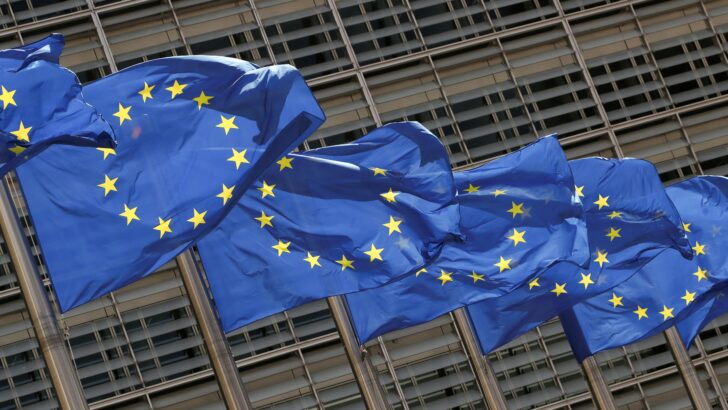Dean Keating
These recent elections were not the parting of the fog that many had hoped for or the endorsement of Government that the Taoiseach has claimed. At best, we can see a stagnation for all three major parties and a diversification of the Irish political spectrum, caused by a rejection of the Government’s more radical policies in relation to climate and migration. A trend that has stark parallels in the broader European context. The rising support for Independents in Ireland, the growing generational divide in Europe and rise in support for the European right has set the stage for an uncertain future.
Similar to the recent local election, the 2019 election saw Fianna Fáil and Fine Gael gain seats with their political rivals losing seats. Sinn Féin alone saw a loss of 78 seats. However, this success completely failed to translate into the general election, where both Fianna Fáil and Fine Gael saw a decline in seats, with Sinn Féin making significant gains. Local elections are distinct from national elections because of the dominance of the two major parties at a local level.
Underpin
This might underpin the Taoiseach’s hesitancy to call a snap election despite calls from within his own party to capitalise on the success of the recent result. Particularly because the two major parties performed poorly in comparison to their 2019 results, losing a joint 41 seats. In the Taoiseach’s own constituency, Fine Gael did not fare well in the local elections, seeing just short of a 5% drop in first preference votes. The party also failed to gain any more seats since the 2019 election, despite Harris recently becoming Taoiseach. There has been no ‘Harris bounce’.
Independents also fared well in the local elections, collectively occupying the third highest number of seats in the country, but many were already sitting councillors. While the issue of immigration polled high in the months leading up to the local election in terms of issues of importance to the electorate, this failed to translate into any major gains for Ireland’s anti-immigration parties. As Sean Murray and Martin Mongan noted in the Irish Examiner, more people with ethnic backgrounds were elected than those on an anti-immigrant ticket. Which would seem to undermine the commentary that suggested an emerging anti-migration vote in Ireland. However, as has been noted by Dr Matt Tracey of Gript, when considering the votes that went to parties and independents that took a right leaning stance towards migration, this would place emerging trends in Ireland at a comparable level to our European counterparts.
The right in Europe was able to capitalise on the decline of the relevancy of class-based left wing politics, and the resulting rise in salience of other collective identities – such as national identity”
The European elections in Ireland saw all the major European groupings decline in support, bar Renew Europe following a strong performance from Fianna Fáil. While the right broadly performed well at a European level, in Ireland, massive vote-splitting meant that they were unable to make any major gains. This was not reflected across Europe, where the right achieved historic success. Right-wing parties took the highest number of seats in every major country across Europe, including Germany, France, Spain, Italy and Poland.
The right in Europe was able to capitalise on the decline of the relevancy of class-based left wing politics, and the resulting rise in salience of other collective identities – such as national identity. Commentators have also noted the importance of growing economic problems on the continent as well as dissatisfaction with the EU as contributing factors to the recent surge for the Right. The united front as well as the professionalisation of the right on the continent in recent decades are also factors that arguably distinguish the success of the European right when compared to recent results of the Irish Right.
The European elections also demonstrated a growing generational divide, where the European youth is rapidly aligning with the radical right on the continent, in comparison to older generations who have remained voting for more moderate parties. Across the continent this has caused a major fall out at a national level, triggering a national election in France and the resignation of the Belgian Prime Minister. Current domestic polling in France suggests that this could result in Marine Le Penn’s Rassemblement National winning its first Prime Ministership.
Unique
Europe appears to be unique in terms of the youth breaking for the right. Commentators have noted that there is a more prominent right wing bent in cultural attitudes among Europeans in comparison to their western anglophone counterparts. This in conjunction with a delayed backlash against the 2015 migrant crisis and a sense that the ‘system’ is failing young people, might give an appeal to the anti-establishment parties of the right.
As the Vice-Chair of Renew Europe claimed: “The fight for the future and identity of Europe has already started.”
The recent elections only add to the uncertainty of the future of politics in Ireland and in Europe.
Dean Keating is an M.S.c candidate in International Politics at Trinity College Dublin and a Student Director for Free Speech Ireland.


 European Union flags flutter outside the EU headquarters in Brussels July 15, 2021. Photo: CNS/Yves Herman, Reuters
European Union flags flutter outside the EU headquarters in Brussels July 15, 2021. Photo: CNS/Yves Herman, Reuters 